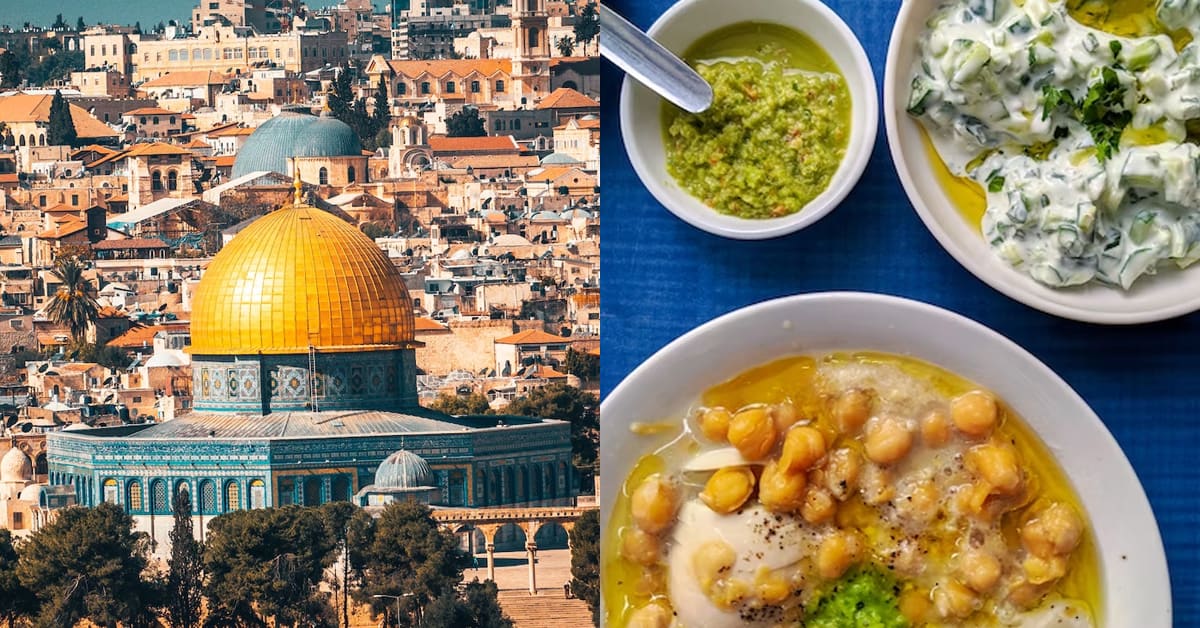Israeli cuisine is a fusion of various culinary traditions from the Middle East, Mediterranean, and North Africa. It is a reflection of the country’s diverse cultural and religious influences, as well as its history and geography. Israeli food is known for its bold flavors, fresh ingredients, and healthy cooking techniques.
From the famous hummus and falafel to the lesser-known shakshuka and sabich, Israeli cuisine offers a wide range of dishes that are both delicious and nutritious. In recent years, Israeli food has gained popularity around the world, with many restaurants and food trucks serving up Israeli-inspired dishes. Whether you are a foodie or just looking to try something new, Israeli cuisine is definitely worth exploring.
Israeli cuisine
Is Israeli food halal?
Not all Israeli food is halal as Israel is a predominantly Jewish country and many of their dishes contain non-halal ingredients such as pork and alcohol. However, there are also many dishes in Israeli cuisine that are halal, such as hummus, falafel, and shakshuka.
It is important to check the ingredients and preparation methods of each dish before consuming it to ensure it is halal.
What kind of food do Israeli eat?
Israeli cuisine is a fusion of Jewish, Mediterranean, Middle Eastern, and North African flavors. Some popular dishes include:
- Hummus – a dip made from chickpeas, tahini, lemon juice, and garlic.
- Falafel – deep-fried balls made from ground chickpeas or fava beans.
- Shakshuka – a dish of eggs poached in a spicy tomato sauce.
- Sabich – a pita sandwich filled with fried eggplant, hard-boiled eggs, hummus, and vegetables.
- Shawarma – a Middle Eastern sandwich made with sliced meat (usually chicken or lamb), vegetables, and tahini sauce.
- Couscous – a North African dish made from small steamed balls of semolina.
- Schnitzel – a breaded and fried chicken or veal cutlet.
- Burekas – a pastry filled with cheese, potatoes, or spinach.
- Israeli salad – a simple salad of chopped tomatoes, cucumbers, onions, and parsley.
- Malabi – a sweet dessert made from milk pudding and rosewater syrup.
How can you tell if the food is halal in Israel?
In Israel, halal food is typically labeled as such and can be found in specialty halal markets or restaurants. Some supermarkets and restaurants may have halal certification from recognized organizations.
It is important to note that not all food in Israel is halal, as the country has a diverse population with different dietary restrictions and preferences. It is recommended to ask the vendor or restaurant staff if the food is halal before consuming it.
Is it hard to find halal food in Israel?
It is not hard to find halal food in Israel, especially in cities with a significant Muslim population like Jerusalem, Nazareth, and Acre. Many restaurants and food stalls offer halal options, and supermarkets also carry halal-certified products.
However, in more rural areas, it may be more challenging to find halal food options. It is always best to check with locals or do research beforehand to ensure that the food is halal.
Is Israeli food healthy?
Israeli cuisine is generally considered healthy due to its emphasis on fresh vegetables, fruits, legumes, and whole grains. Israeli dishes often include ingredients such as chickpeas, eggplant, tomatoes, cucumbers, and herbs, which are all nutrient-dense and low in calories.
Israeli cuisine incorporates a variety of spices and herbs, which have been shown to have health benefits. However, like any cuisine, Israeli food can also include less healthy options such as fried foods and sugary desserts.
What is Israeli food similar to?
Israeli food is a fusion of Middle Eastern, Mediterranean, and Jewish cuisine. Some dishes may have similarities to Lebanese, Syrian, Turkish, or Greek cuisine, but Israeli food has its own unique flavors and ingredients.
Steps to find halal food in Israel
Here are some tips in finding halal food in Israel:
- Research halal food options in Israel: Start by researching halal food options in Israel. You can use search engines, social media, or online directories to find halal restaurants, grocery stores, and food markets.
- Check for halal certification: Once you have a list of halal food options, check if they have halal certification. Halal certification ensures that the food is prepared according to Islamic dietary laws.
- Ask locals: If you are in Israel, ask locals for recommendations on halal food options. They can guide you to the best halal restaurants and food markets in the area.
- Use halal food apps: There are several halal food apps available that can help you find halal food options in Israel. These apps provide information on halal restaurants, grocery stores, and food markets.
- Visit halal food markets: Halal food markets are a great place to find halal food options in Israel. These markets offer a wide range of halal food products, including meat, poultry, and dairy products.
- Look for vegetarian and vegan options: If you are unable to find halal food options, look for vegetarian and vegan options. These options are usually halal-friendly and can be a good alternative.
- Be cautious when dining out: When dining out, be cautious and ask the restaurant staff about the ingredients used in the food. Avoid dishes that contain pork or alcohol, as they are not halal.

